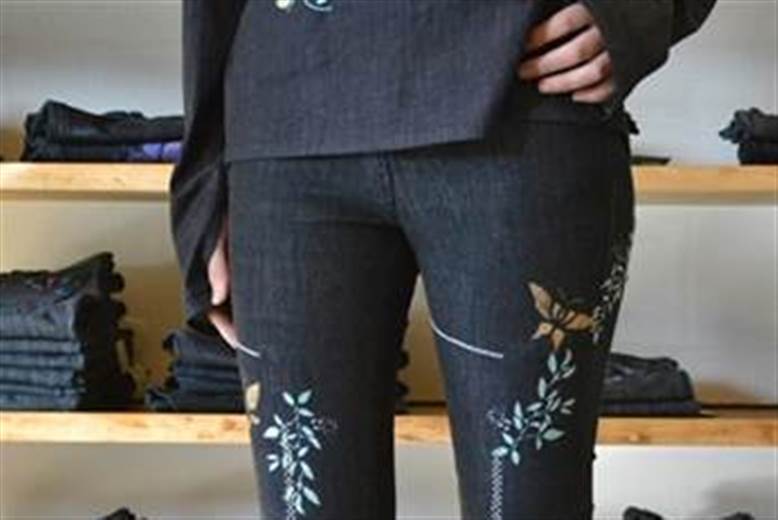Teijin and Kansai University offer ‘stitched’ wearable sensors
16/01/2018

E-stitch sensors are unrestricted in terms of fabric types and embroidery patterns, said Teijin, and can detect extension, contraction, bending and twisting.
They “represent a break from preconceived ideas about wearable sensors because they offer new levels of sensing, convenience and fashion”, it added.
The partners have incorporated the sensors into Japanese braided cords, known as kumihimo, and into denim wear by Japanese designer Homay (pictured).
They will be displayed alongside samples of e-stitch sensors in athletic shoe insoles at The 4th Wearable Expo, which will take place at Tokyo Big Site from January 17 to 19.
Kansai University and Teijin have been jointly developing PLA piezoelectric materials for a number of years. They introduced a flexible piezoelectric film by alternately laminating poly-L-lactide (PLLA) and the optical isomer poly-D-lactide (PDLA) in 2012, PLA fibre and carbon fibre-based piezoelectric fabrics in 2015, piezoelectric roll for load-dependent voltage generation and attenuation in 2016, and piezoelectric kumihimo wearable sensors that detect body motions such as elongation and contraction, bending and extension and twisting in 2017.
Piezoelectricity is the generation of electric charges by certain materials in response to mechanical stress.











